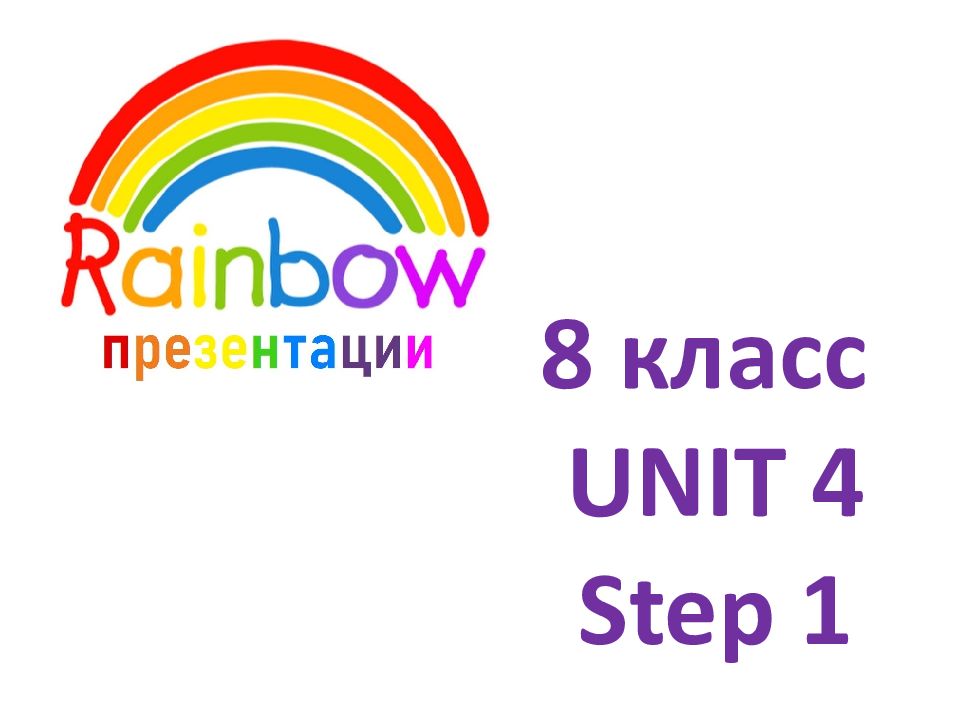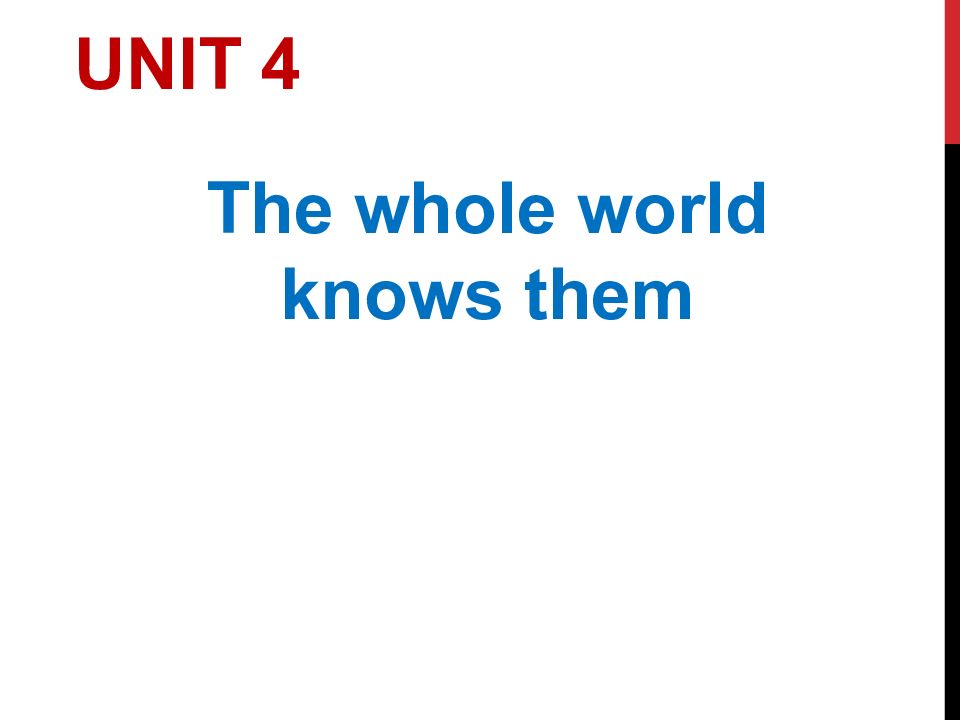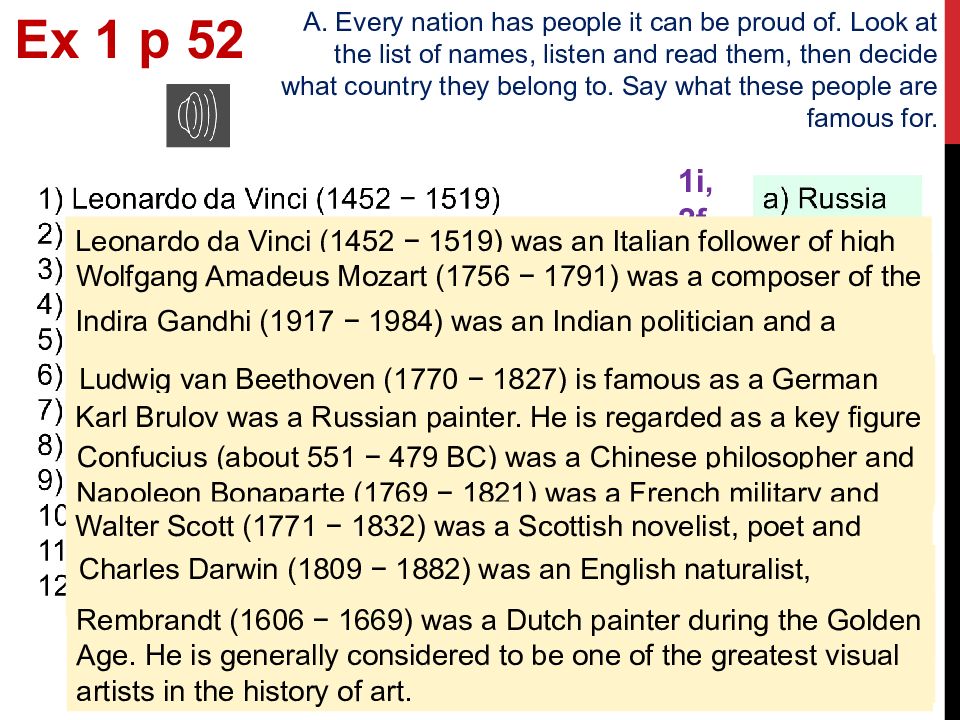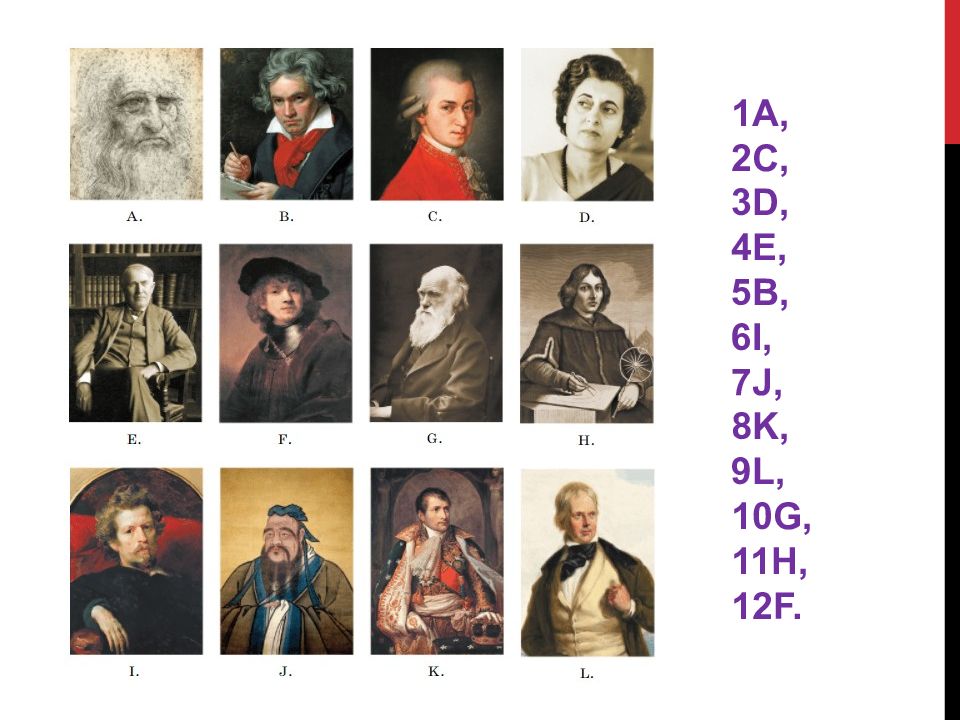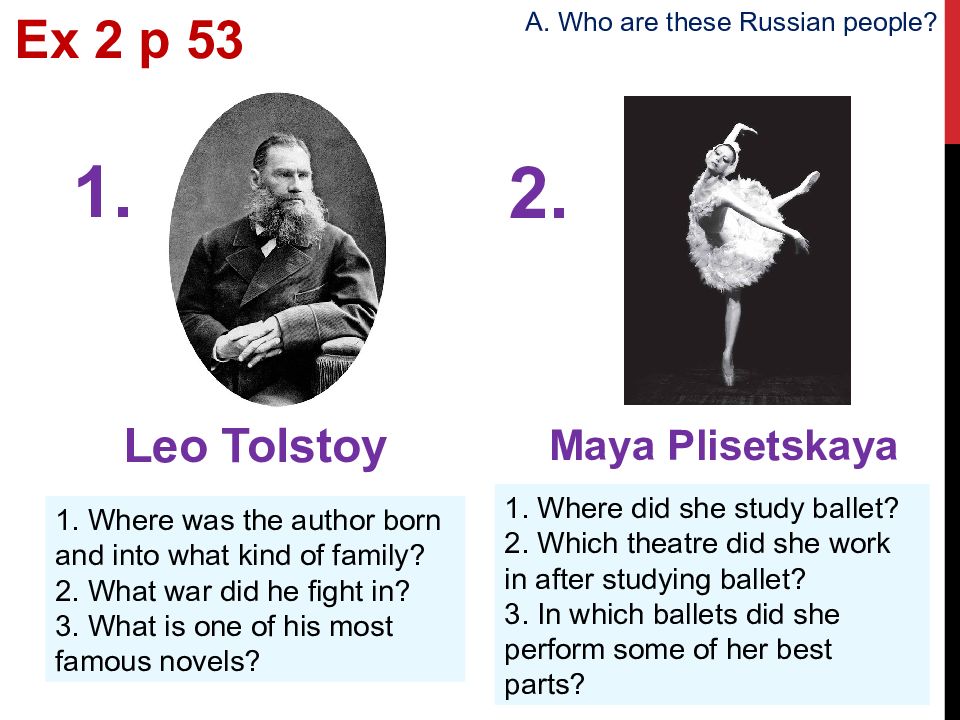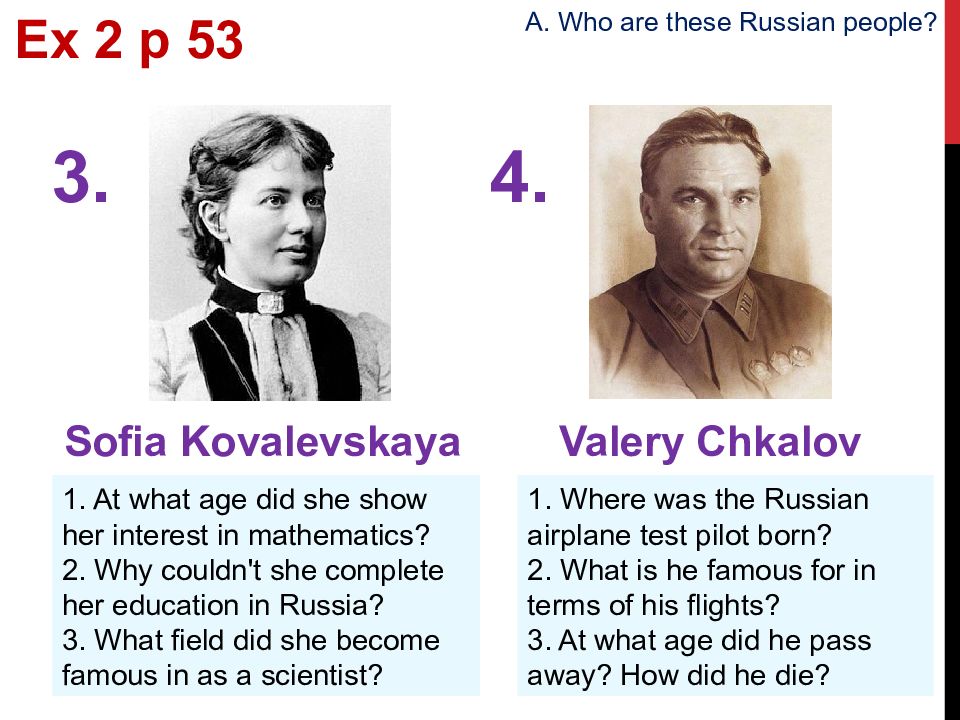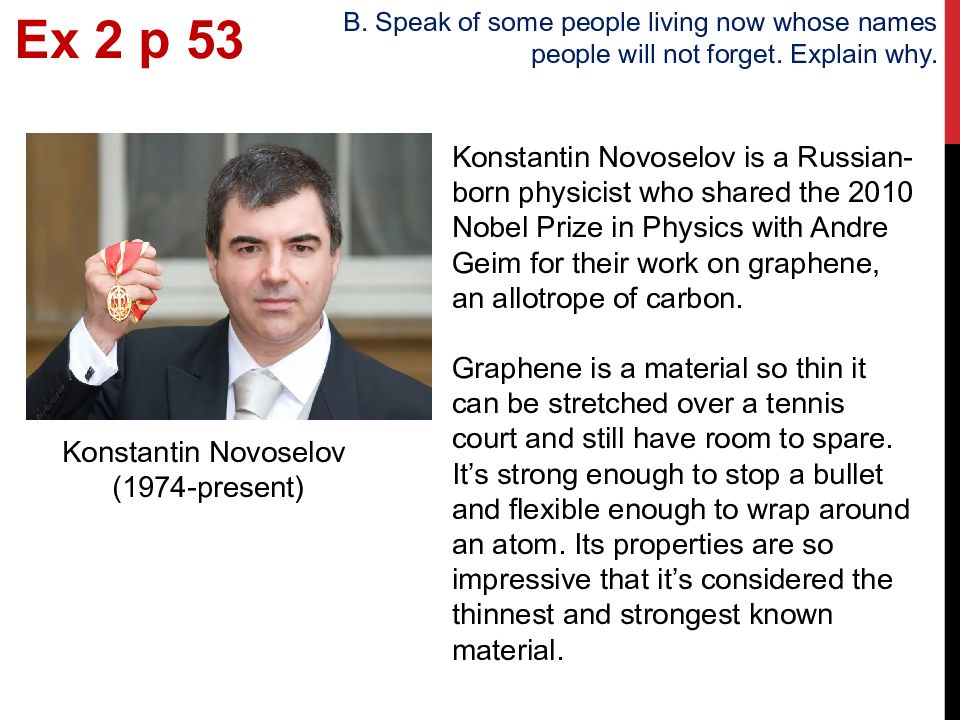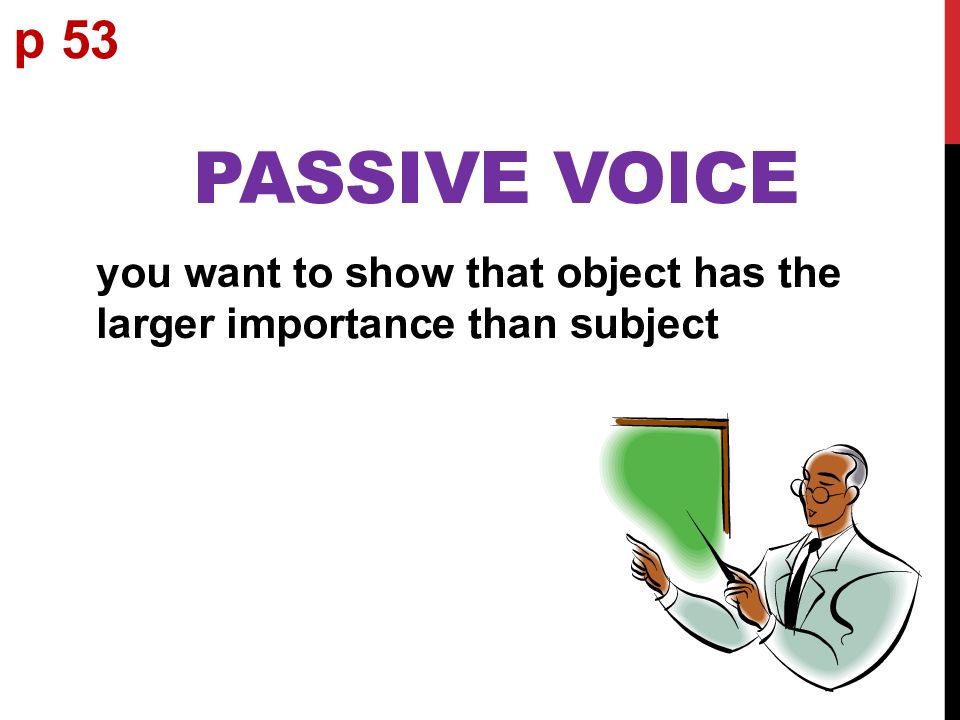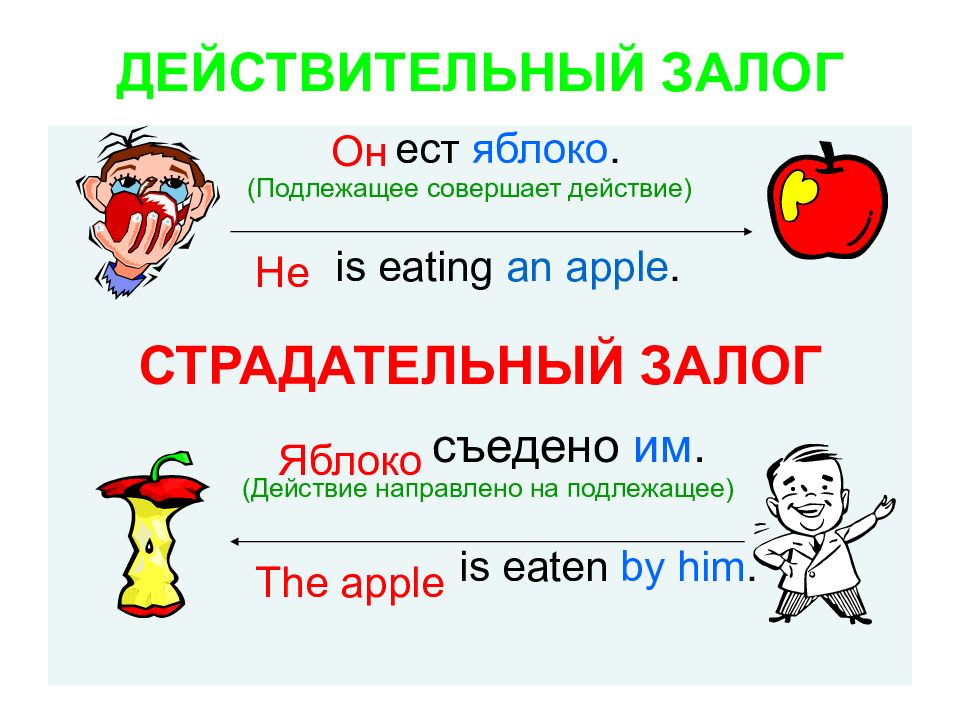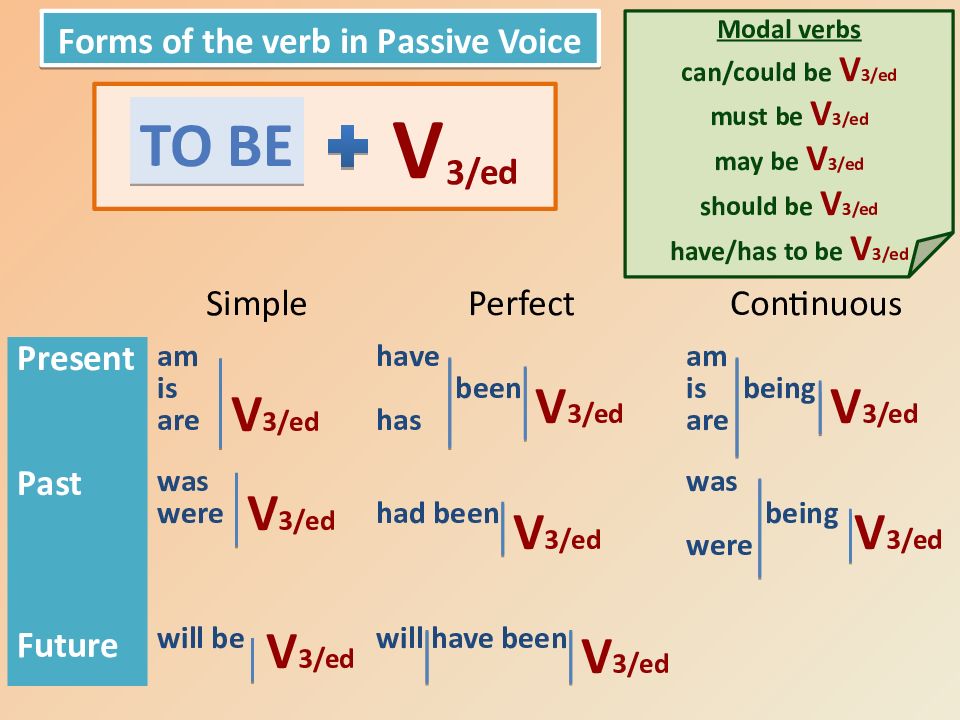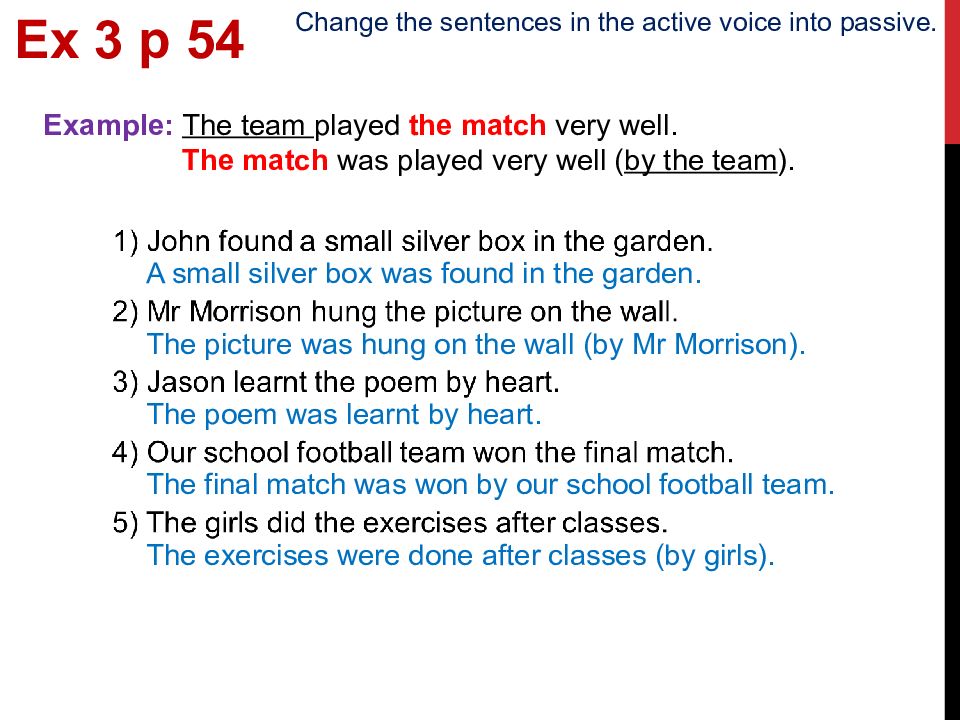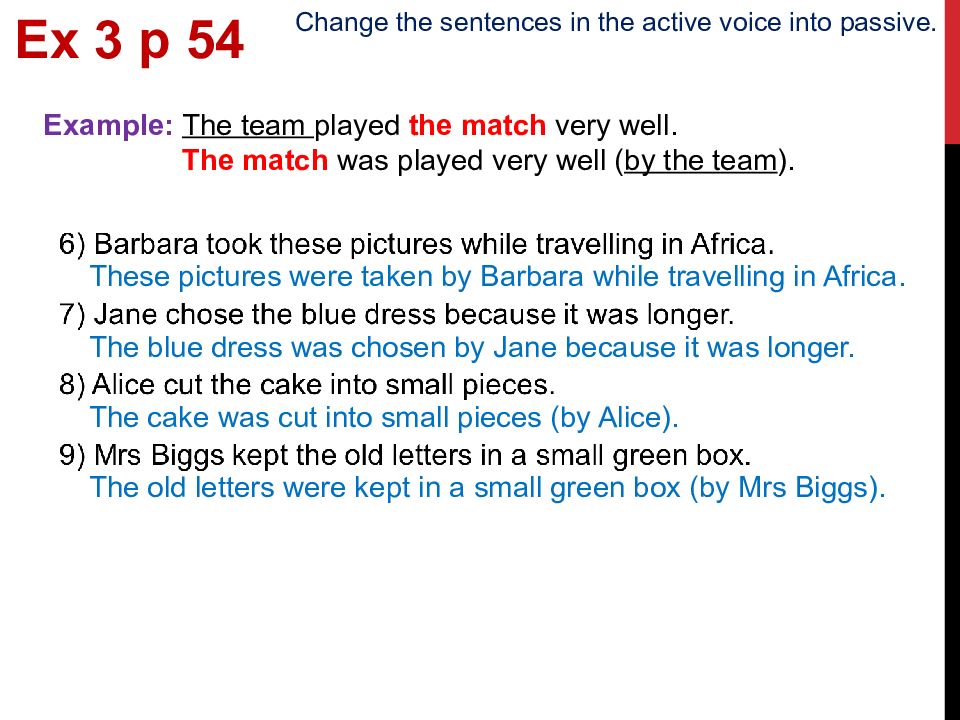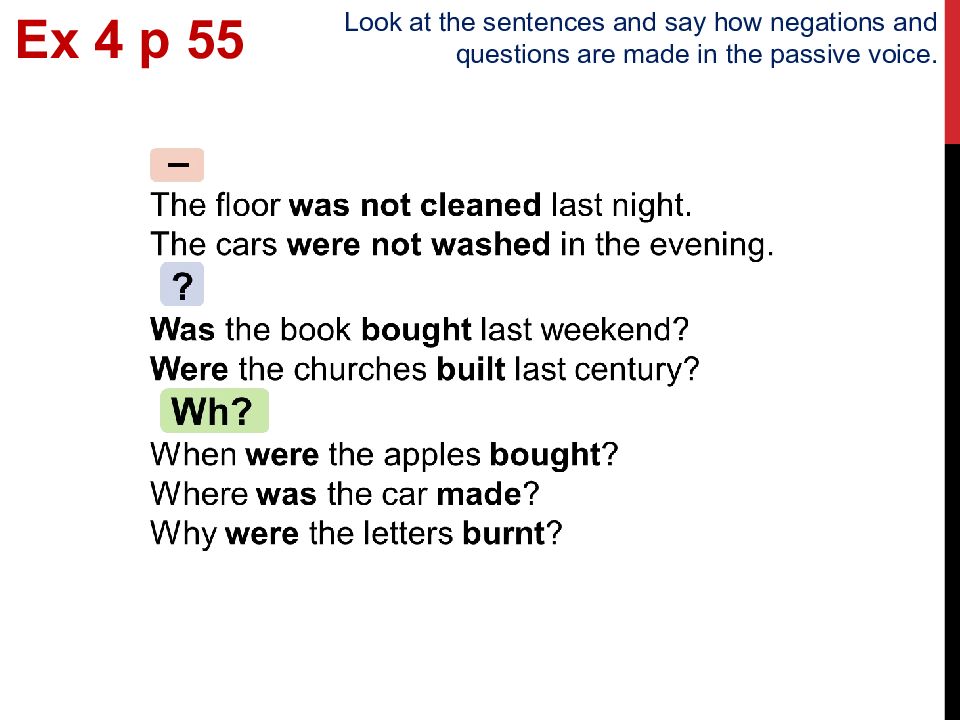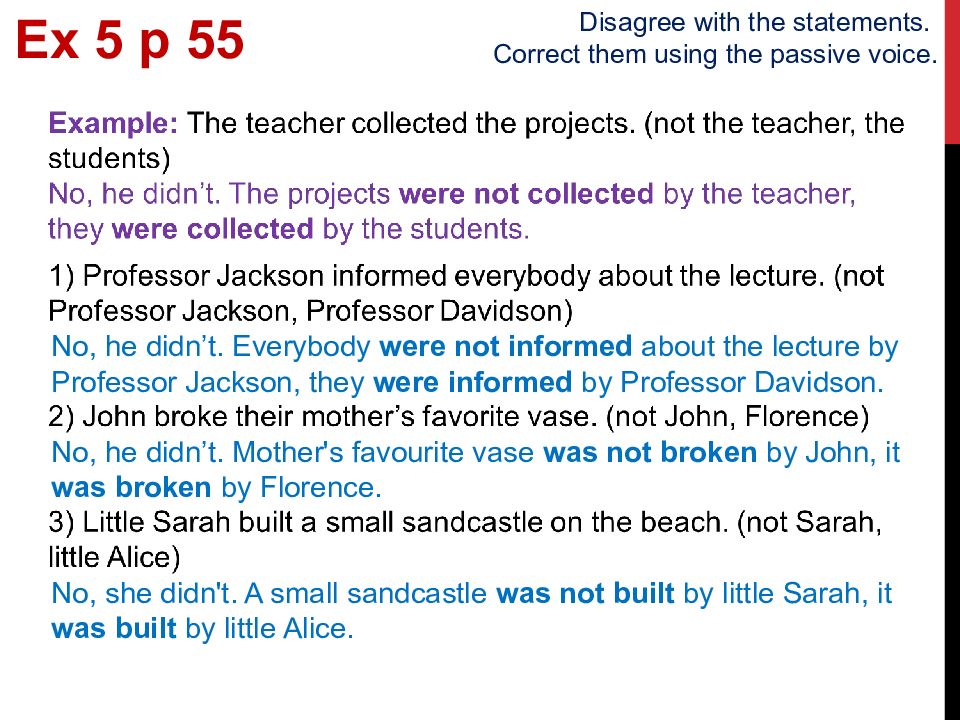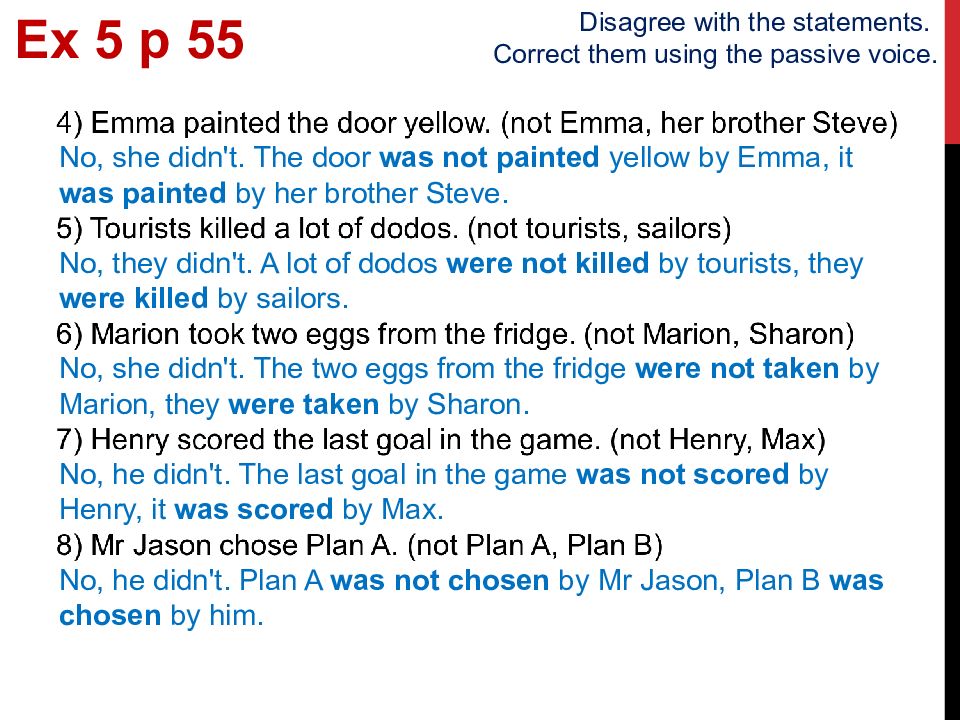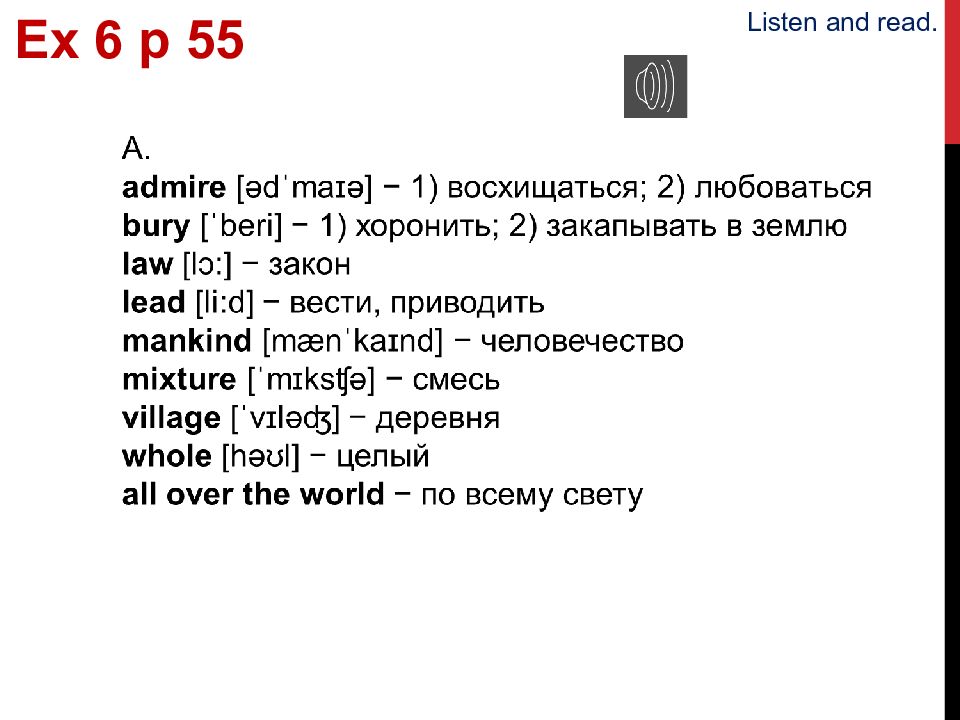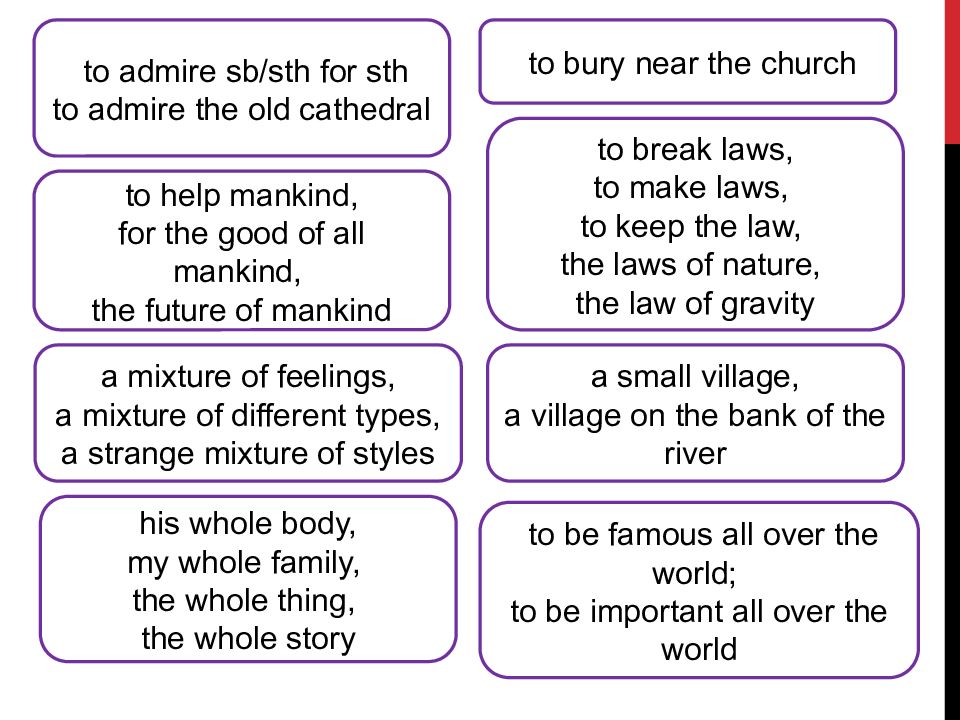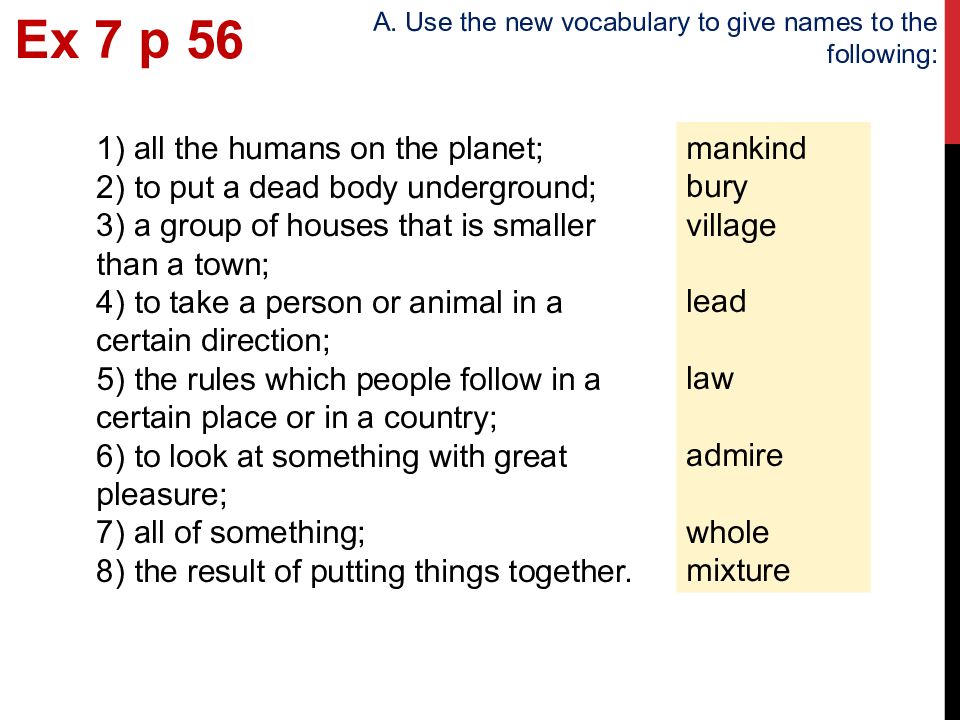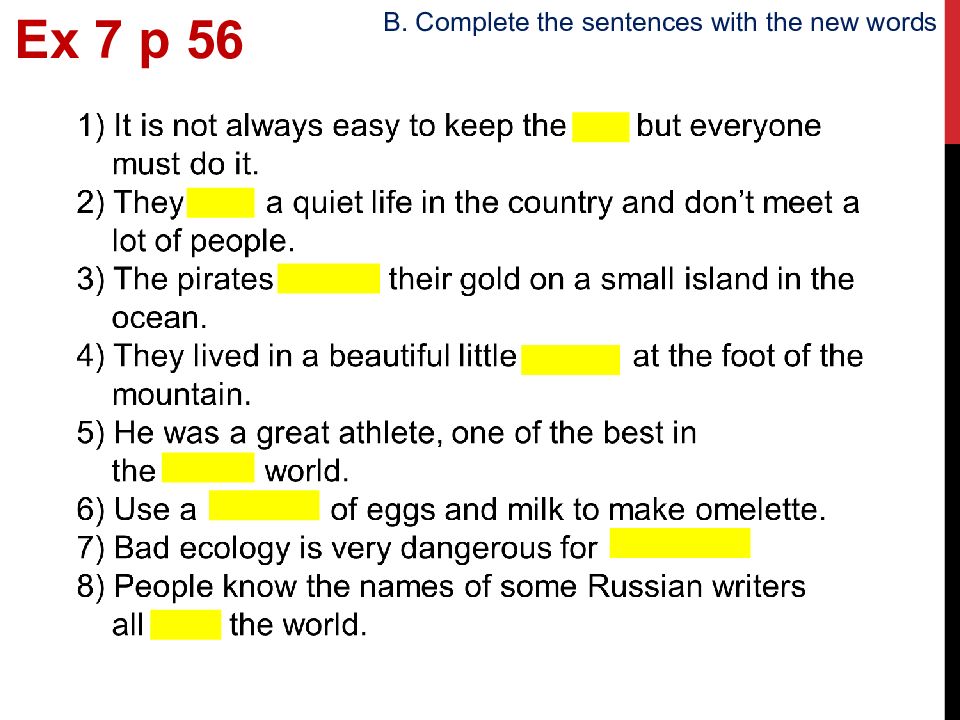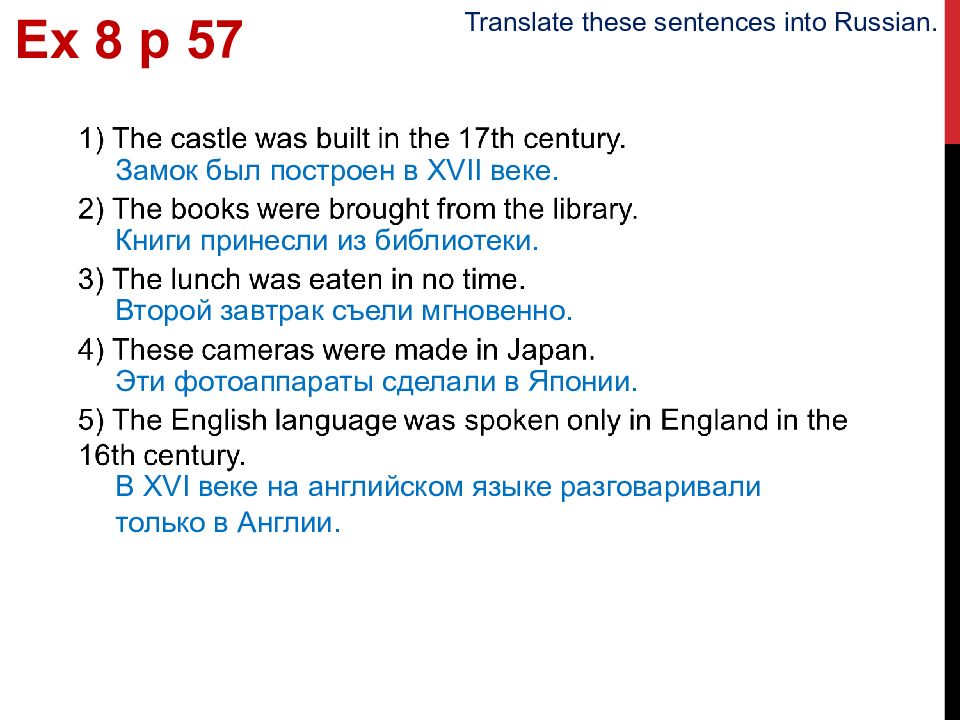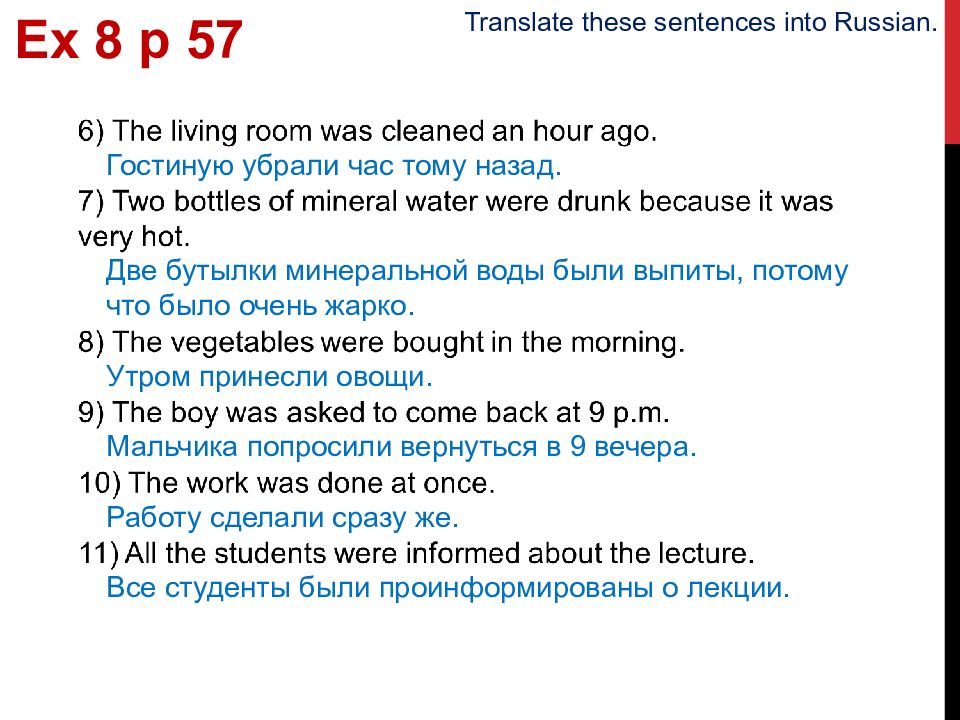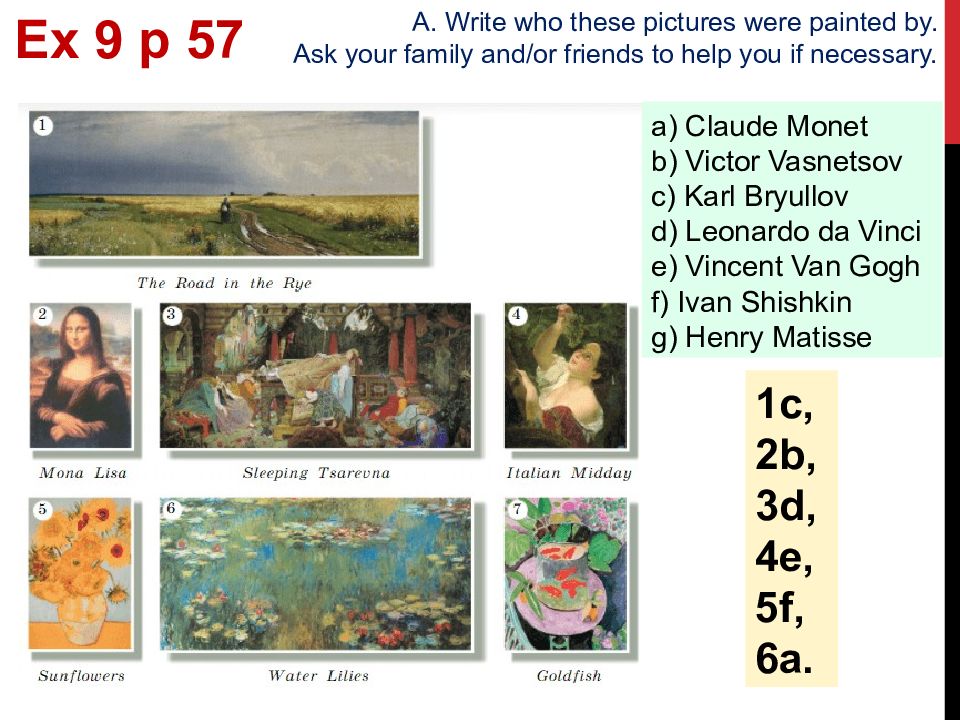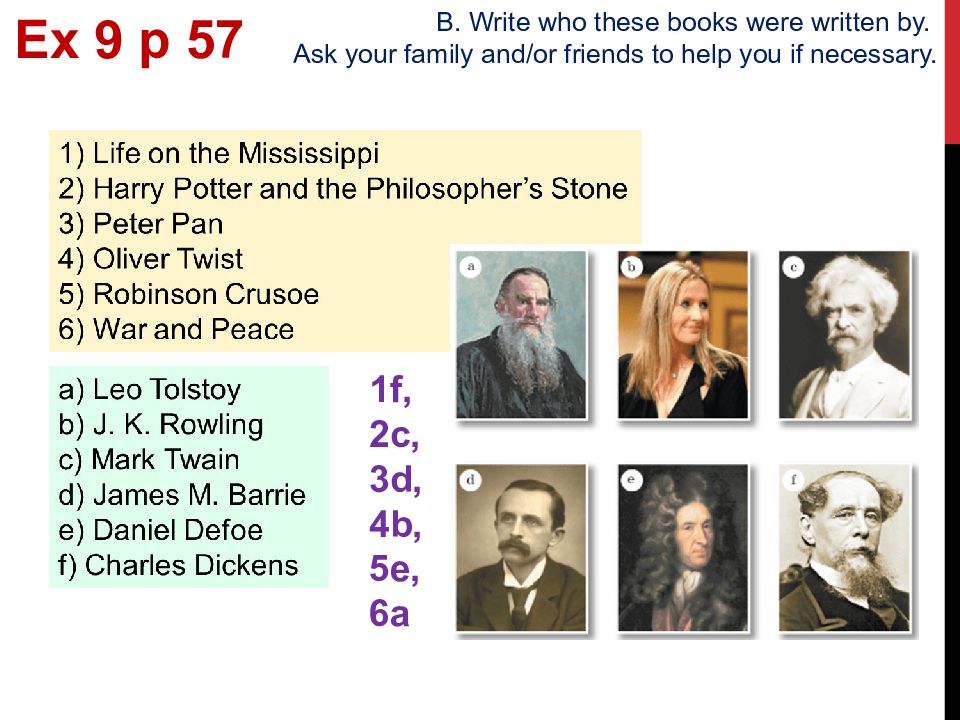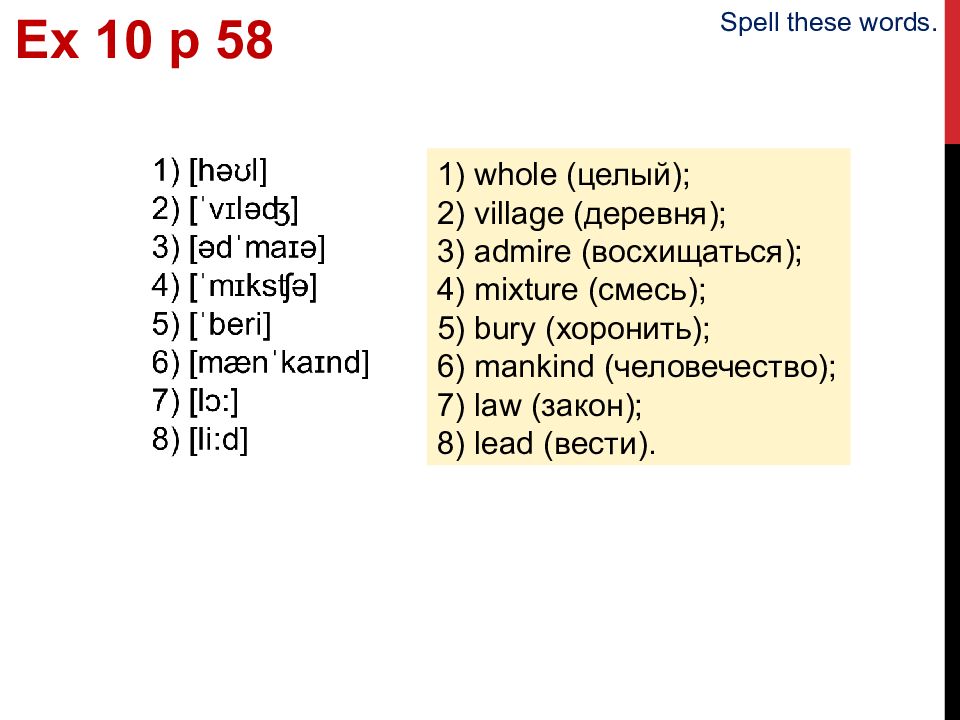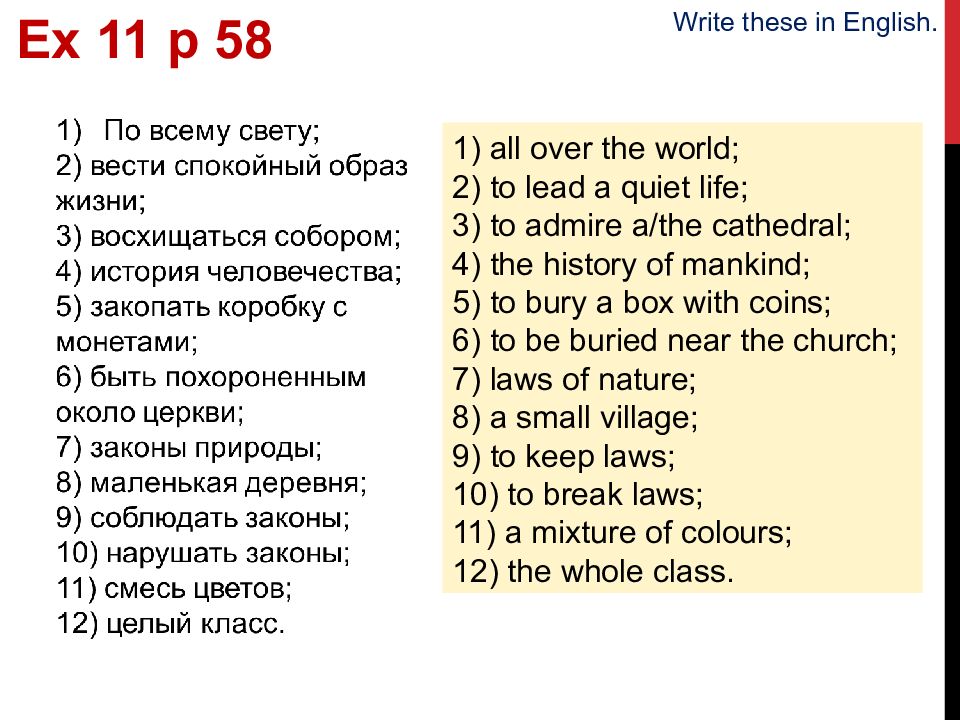Слайд 3
1i, 2f, 3h, 4c, 5j, 6a, 7l, 8k, 9g, 10b, 11e, 12d. Ex 1 p 52 A. Every nation has people it can be proud of. Look at the list of names, listen and read them, then decide what country they belong to. Say what these people are famous for. Leonardo da Vinci (1452 − 1519) was an Italian follower of high renaissance who was active as a painter, engineer, scientist, theorist, sculptor and architect. He is known for his notebook, where he portrayed human anatomy. Wolfgang Amadeus Mozart (1756 − 1791) was a composer of the Classic period. Although he didn’t live a long life, he wrote over 800 masterpieces. Indira Gandhi (1917 − 1984) was an Indian politician and a central figure of the Indian Congress. She was the first and only woman prime minister of India to date. Thomas Alva Edison (1847 − 1931) was an American inventor and businessman. He developed many electronic devices. Most famous for the creation of sound communication, sound recording and electric power generation. Ludwig van Beethoven (1770 − 1827) is famous as a German composer and pianist. To this day, he remains one of the most admired composers in the world. Despite suffering from deafness, he still made music. Karl Brulov was a Russian painter. He is regarded as a key figure in transition from the Russian neoclassicism to romanticism. Confucius (about 551 − 479 BC) was a Chinese philosopher and poet. His teaching still are influential across China. Napoleon Bonaparte (1769 − 1821) was a French military and political leader who rose to prominence. He took charge during the French revolution and lead several wars. Walter Scott (1771 − 1832) was a Scottish novelist, poet and historian. Many of his works remain classics of European literature. Charles Darwin (1809 − 1882) was an English naturalist, geologist and biologist. He is commonly known for his contribution to the evolutionary biology. Nicholas Copernicus (1473 − 1543) was a Renaissance scientist, active as a mathematician, astronomer. He is famous for his model of the universe, where the sun was placed in the centre. Rembrandt (1606 − 1669) was a Dutch painter during the Golden Age. He is generally considered to be one of the greatest visual artists in the history of art.
Слайд 5
2. 1. Leo Tolstoy Maya Plisetskaya Ex 2 p 53 A. Who are these Russian people? 1. Where was the author born and into what kind of family? 2. What war did he fight in? 3. What is one of his most famous novels? 1. Where did she study ballet? 2. Which theatre did she work in after studying ballet? 3. In which ballets did she perform some of her best parts?
Слайд 6
4. 3. Sofia Kovalevskaya Valery Chkalov Ex 2 p 53 A. Who are these Russian people? 1. At what age did she show her interest in mathematics? 2. Why couldn't she complete her education in Russia? 3. What field did she become famous in as a scientist? 1. Where was the Russian airplane test pilot born? 2. What is he famous for in terms of his flights? 3. At what age did he pass away? How did he die?
Слайд 7
Ex 2 p 53 B. Speak of some people living now whose names people will not forget. Explain why. Konstantin Novoselov (1974-present) Konstantin Novoselov is a Russian-born physicist who shared the 2010 Nobel Prize in Physics with Andre Geim for their work on graphene, an allotrope of carbon. Graphene is a material so thin it can be stretched over a tennis court and still have room to spare. It’s strong enough to stop a bullet and flexible enough to wrap around an atom. Its properties are so impressive that it’s considered the thinnest and strongest known material.
Слайд 8: PASSIVE VOICE
you want to show that object has the larger importance than subject p 53
Слайд 9: ДЕЙСТВИТЕЛЬНЫЙ ЗАЛОГ
ест яблоко. (Подлежащее совершает действие) is eating an apple. СТРАДАТЕЛЬНЫЙ ЗАЛОГ съедено им. (Действие направлено на подлежащее) is eaten by him. He Он Яблоко The apple
Слайд 10
To be V 3/ ed Forms of the verb in Passive Voice Simple Perfect Continuous Present am is are have been has am is being are Past was were had been was being were Future will be will have been V 3/ ed V 3/ ed V 3/ ed V 3/ ed V 3/ ed V 3/ ed V 3/ ed V 3/ ed Modal verbs can/could be V 3/ ed must be V 3/ ed may be V 3/ ed should be V 3/ ed have/has to be V 3/ ed
Слайд 11
A small silver box was found in the garden. The picture was hung on the wall (by Mr Morrison). The poem was learnt by heart. The final match was won by our school football team. The exercises were done after classes (by girls). Ex 3 p 5 4 Change the sentences in the active voice into passive. Example: The team played the match very well. The match was played very well ( by the team ).
Слайд 12
These pictures were taken by Barbara while travelling in Africa. The blue dress was chosen by Jane because it was longer. The cake was cut into small pieces (by Alice). The old letters were kept in a small green box (by Mrs Biggs). Ex 3 p 5 4 Change the sentences in the active voice into passive. Example: The team played the match very well. The match was played very well ( by the team ).
Слайд 13
Ex 4 p 5 5 Look at the sentences and say how negations and questions are made in the passive voice.
Слайд 14
Ex 5 p 5 5 Disagree with the statements. Correct them using the passive voice. No, he didn’t. Everybody were not informed about the lecture by Professor Jackson, they were informed by Professor Davidson. No, he didn’t. Mother's favourite vase was not broken by John, it was broken by Florence. No, she didn't. A small sandcastle was not built by little Sarah, it was built by little Alice.
Слайд 15
Ex 5 p 5 5 Disagree with the statements. Correct them using the passive voice. No, she didn't. The door was not painted yellow by Emma, it was painted by her brother Steve. No, they didn't. A lot of dodos were not killed by tourists, they were killed by sailors. No, she didn't. The two eggs from the fridge were not taken by Marion, they were taken by Sharon. No, he didn't. The last goal in the game was not scored by Henry, it was scored by Max. No, he didn't. Plan A was not chosen by Mr Jason, Plan B was chosen by him.
Слайд 17
to admire sb / sth for sth to admire the old cathedral to bury near the church to break laws, to make laws, to keep the law, the laws of nature, the law of gravity to help mankind, for the good of all mankind, the future of mankind a mixture of feelings, a mixture of different types, a strange mixture of styles a small village, a village on the bank of the river his whole body, my whole family, the whole thing, the whole story to be famous all over the world; to be important all over the world
Слайд 18
Ex 7 p 5 6 A. Use the new vocabulary to give names to the following: 1) all the humans on the planet; 2) to put a dead body underground; 3) a group of houses that is smaller than a town; 4) to take a person or animal in a certain direction; 5) the rules which people follow in a certain place or in a country; 6) to look at something with great pleasure; 7) all of something; 8) the result of putting things together. mankind bury village lead law admire whole mixture
Слайд 20
Замок был построен в XVII веке. Книги принесли из библиотеки. Второй завтрак съели мгновенно. Эти фотоаппараты сделали в Японии. В XVI веке на английском языке разговаривали только в Англии. Ex 8 p 5 7 Translate these sentences into Russian.
Слайд 21
Ex 8 p 5 7 Translate these sentences into Russian. Гостиную убрали час тому назад. Две бутылки минеральной воды были выпиты, потому что было очень жарко. Утром принесли овощи. Мальчика попросили вернуться в 9 вечера. Работу сделали сразу же. Все студенты были проинформированы о лекции.
Слайд 22
1c, 2b, 3d, 4e, 5f, 6a. Ex 9 p 5 7 A. Write who these pictures were painted by. Ask your family and/or friends to help you if necessary. a) Claude Monet b) Victor Vasnetsov c) Karl Bryullov d) Leonardo da Vinci e) Vincent Van Gogh f) Ivan Shishkin g) Henry Matisse
Слайд 23
1f, 2c, 3d, 4b, 5e, 6a Ex 9 p 5 7 B. Write who these books were written by. Ask your family and/or friends to help you if necessary.
Слайд 24
1) whole ( целый); 2) village ( деревня); 3) admire ( восхищаться); 4) mixture ( смесь); 5) bury ( хоронить); 6) mankind ( человечество); 7) law ( закон); 8) lead ( вести). Ex 10 p 5 8 Spell these words.
Последний слайд презентации: 8 класс UNIT 4 Step 1
1) all over the world; 2) to lead a quiet life; 3) to admire a/the cathedral; 4) the history of mankind; 5) to bury a box with coins; 6) to be buried near the church; 7) laws of nature; 8) a small village; 9) to keep laws; 10) to break laws; 11) a mixture of colours ; 12) the whole class. Ex 11 p 5 8 Write these in English.
